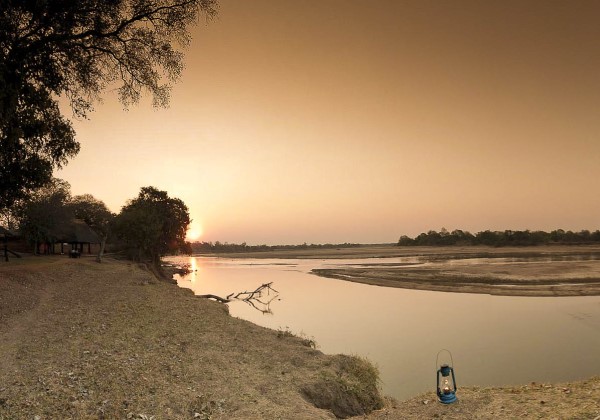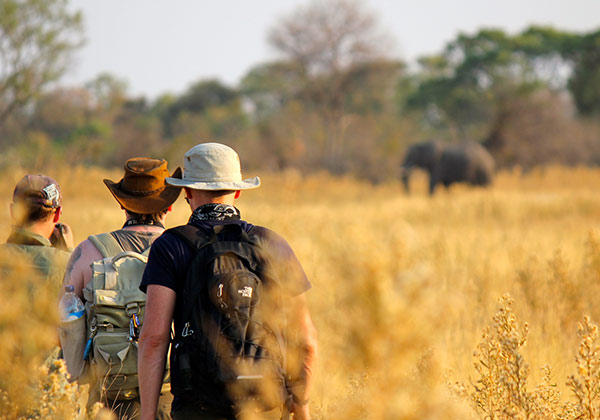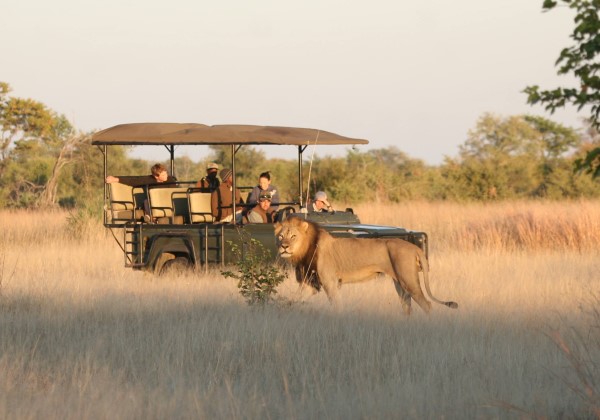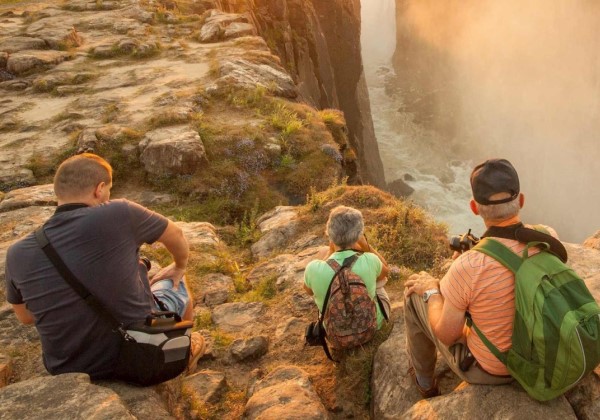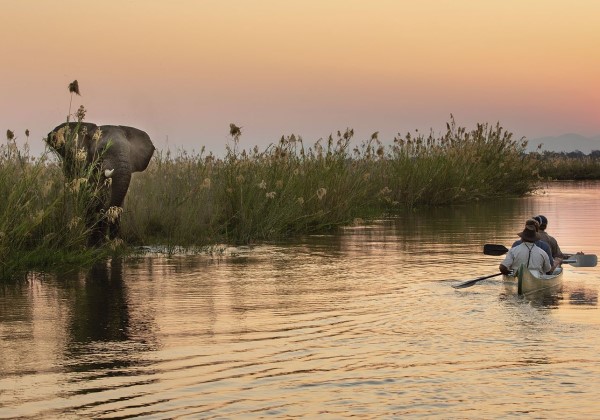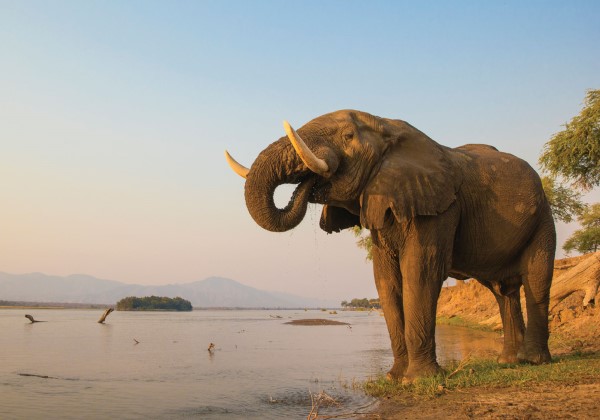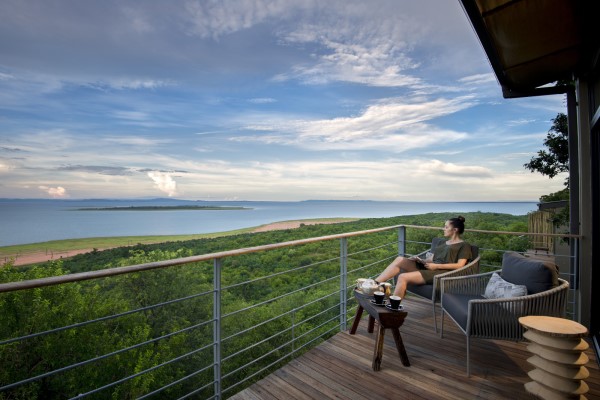Call Us
8:00am - 17:00PM
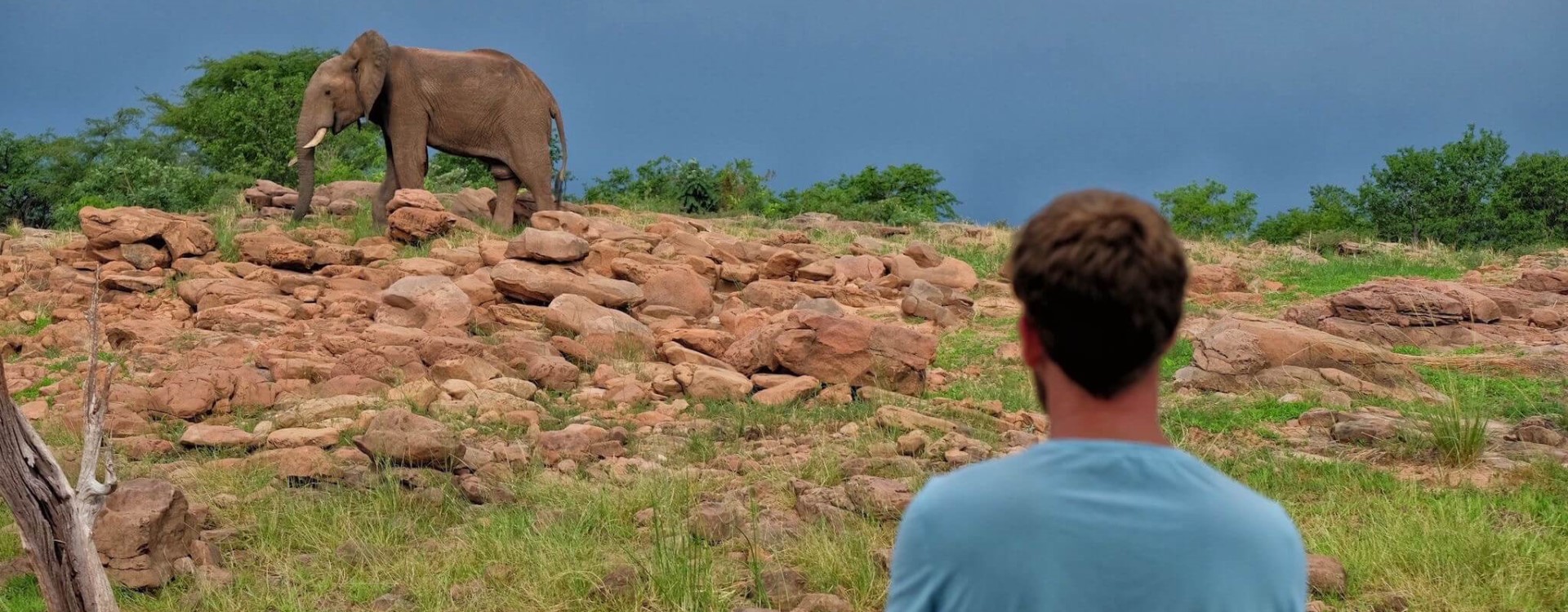
Zimbabwe Travel Requirements
Zimbabwe
Travel Requirements
Let's take a look at some of the Zimbabwe Travel Requirements to the most frequently asked questions by travelers about traveling to Zimbabwe, including travel advice, entry requirements, the Zimbabwe eVisa, customs forms, and more.
Known as the adventure capital, Zimbabwe is one of the finest holiday and safari destinations in the entire African continent. And Zimbabwe Safaris is the best way to explore the vast varied wildlife and wilderness.
Safety and Security
Victoria Falls
There are three factors that determine the safety of a country namely political, social, environmental and health factors.
Political
Zimbabwe is politically stable. There are no civil wars hence it is safe to visit. You can come for a Zimbabwe Vacation without having any doubt.
Environmental
Currently, Zimbabwe is not experiencing any natural disasters. Since 2017 when there was a cyclone that destroyed infrastructure, Zimbabwe has not experienced the same tragedy to date. This indicates that Zimbabwe is safe to visit.
Social
The rate of crime in Zimbabwe is a bit high. Mugging, scamming and petty theft are examples of crime in Zimbabwe. However, the probability for international tourists to be victim of such crimes is close to zero.
Health
Apart from thCOVID-19 pandemic that affected the whole world Zimbabwe is free from contagious diseases that can risk the lives of tourists.
Diseases such as typhoid, hepatitis A and cholera are examples of diseases that one can be vaccinated for before travelling to Zimbabwe.
As for malaria, tourists can get prophylactic drugs to prevent catching malaria, especially during wet seasons.
These factors explained above indicate that Zimbabwe is safe and it is perfect for your next Holidays In Zimbabwe .
Airports in Zimbabwe
There are 3 main airports in Zimbabwe namely; Robert Mugabe international airport in Harare, the Victoria falls international airport in Victoria falls and the Joshua Mqabuko Nkomo International airport in Bulawayo.
There other minor airports mainly for domestic flights which are
- Kariba airport
- Masvingo airport
- Mutare Aerodrome terminal
- Hwange Airport
- Gweru airport
- Kotwa airport
- Kwekwe east airport
- Pangkalan Udara Thornhill
- Prince Charles
- Aeroportul Binga.
About 16 airlines fly into Zimbabwe directly. However, people can fly to Johannesburg then connect to either Harare, Victoria falls or Bulawayo.
For people to fly to other Destinations In Zimbabwe travellers can board the domestic planes.
Entry and exit requirements
Here is a list of Zimbabwe entry requirements
- Proof of vaccination against COVID -19 or negative PCR test taken 48 hours before travelling.
- Valid passport for a minimum of 6 months from the date of arrival with at least 2 blank pages.
- A valid Visa
For exit requirements, please check with the airline.
Passport, Visa & Other Entry Requirement
Visa
In order to visit Zimbabwe, all travellers must have a Visa. There are two types of Visas; the first one is the single entry Visa which allows travellers to enter Zimbabwe only one time.
There is also the double entry visa which allows travellers to enter Zimbabwe twice.
Lastly, there is a multiple-entry visa that allows you to enter and leave Zimbabwe multiple times until it expires.
The Visa can be extended or renewed. Holders of tourist Visas are not allowed to start any business or look for employment.
Proof of vaccination status.
All travellers should have proof of full vaccination for COVID-19 or a negative COVID-19 test result taken 48-hour prior travelling.
Valid passport.
Guests traveling to Zimbabwe must have a valid passport for six months from date of travel. The passport should have at least two blank pages.
Zimbabwe Travel insurance
Travellers should get travel insurance to cover them from unexpected losses that may occur. these losses such as loss of luggage, injury and early cancellation.
Travel insurance examples include
- Medical insurance
- Luggage insurance
- Trip interruption or early cancellation insurance.
Vaccine requirements
Diseases such as Covid 19 typhoid, hepatitis A and cholera are examples of diseases that one can be vaccinated for before travelling to Zimbabwe.
Zimbabwe Travel Advice
Here is the advice you need to take, if you are planning your next Zimbabwe Tours to explore the Things To Do In Zimbabwe.
- Travel insurance is a must so as to cover your selves from unexpected losses.
- Avoid any political gatherings as they may turn out violent.
- You must never take photographs of the government building, armed forces, police and any demonstration.
- The economic situation in Zimbabwe is unpredictable hence prices may fluctuate.
- Zimbabwe is experiencing power shortages which might lead to frequent power cuts due to load shedding.
- Always make sure your valuables are safe as there is an increase in crime in Zimbabwe.
- Always carry an identification document or passport copy.
- When travelling to safari areas carry a well-stocked first aid kid box
Know about Zimbabwe’s Currency
Zimbabwe is a multi-currency country. The primary currency of Zimbabwe is the Bond note, although it is not internationally recognized. The USD is the Zimbabwean currency that is recognized internationally as the currency of Zimbabwe. Other currencies can be used as legal tender in Zimbabwe.
Culture and Discovery in Zimbabwe
Languages
Zimbabwe is a multi-lingual country. 17 languages are spoken in Zimbabwe. Shona and Ndebele are the most spoken. English is the second language used in Zimbabwe. it is mainly used for all formal communication.
What are the Zimbabwean cultures known for?
Myths and storytelling
The Zimbabwean culture is known for storytelling and folklore. Some of the folklore includes the Nyaminyami the Zambezi river god. Storytelling is widely known in Zimbabwe known as (nano) usually told by the elders to their grandchildren.
Activities
The Shona and Ndebele are known for basketry, weaving and curving rocks. Pottery is also popular where different pots are made from clay.
Norms
The Shona are very welcoming, obedient and respectful, as the Shona word talks of (tsika). The Shona also believe in self-control also known as hunhu in Shona and Ubuntu in Ndebele.
Totems ‘Mitupo’
The use of totems or mitupo is widely known in Zimbabwe. Totems are used todifferente clans and are usually associated by animal names. For example, Mhofur represents a beast.
Cultural ceremonies in Zimbabwe
Bira -this is an all-night ritual done to ask for guidance from the ancestors (vadzimu).
Rain-making ceremony (mukwerera) – this is a ceremony done to evoke the ancestors to bring rain.
Kurova Guva – is a ritual done to bring the spirit of the dead back into the community to guide them.
Religion
The main religion in Zimbabwe is Christianity. They believe in one creator who created the heavens and the earth, God or known as Mwari in Shona or Umlimu in Ndebele. There are several church denominations in Zimbabwe.
Food
The staple meal for Zimbabwe is maize. Maize is a plant also known as chibage in Shona. Maize can be cooked or roasted and can be eaten as corn or can be ground into a mealie meal that is used to make sadza, porridge or a traditional drink known as maheu in Shona. Zimbabweans eat meat, addible insects such as termites, Mopani worms and addible plants.
Health, Medical services and facilities
There are approximately 214 hospitals in Zimbabwe 70% are owned by the government and 30 % are owned by private individuals. There is a health care facility in every province making it convenient for tourists to easily get help when there is a need.
The table below shows the prices of consultation fees in Zimbabwe’s healthcare facilities.
|
Price/Category |
Public |
Private |
|---|---|---|
|
Adult |
$12 US |
$35 |
|
Child |
$6 US |
$18 |
Medical aids accepted in Zimbabwe.
- Cimas
- First Mutual Life
- PSMAS
- BonVie
- Mars
International travellers should obtain international health insurance so as to access health care.
Remember that Zimbabwe Travel Requirements and regulations may vary and can change over time. It's recommended to check the latest information from official sources, such as the embassy or consulate of Zimbabwe, before your Zimbabwe Safari. By being well-prepared and informed, you can ensure a hassle-free and enjoyable travel experience in Zimbabwe.
Zimbabwe
Travel Requirements
Related Zimbabwe Travel Guide
We Think You’ll Love
Frequently Asked Questions
We Think You’ll Love
Clothing
Pack light clothing especially when going for hikes. When going on safaris pack neutral colours such as brown, khaki, green and beige. Comfortable shoes are a must-have as well as hats and jerseys in case it gets cold.
Other staff to pack
Remember to carry your photography equipment such as cameras or phones. Also, carry binoculars or hire if going for a Zimbabwe Safari.
Passport and visa
Guests travelling to Zimbabwe must have a valid passport for six months from the date of travel. The passport should have at least two blank pages plus a multi-entry visa in case they want to travel to neighbouring countries.
For any questions related to the Zimbabwe Travel Requirements, you can contact our guides. And if you are looking for a perfect holiday destination, Zimbabwe would be the best choice.
On a Zimbabwe Safari, you will explore Africa’s best-kept secrets- wildlife and adventure.
Zimbabwe is a multi-currency country. The primary currency of Zimbabwe is the Bond note, although it is not internationally recognized. The USD is the Zimbabwean currency that is recognized internationally as the currency of Zimbabwe. Other currencies can be used as legal tender in Zimbabwe.
Credit cards are acceptable in Zimbabwe.
- VISA card
- Master cards
- Other internationally recognizes cards.
Luggage is restricted on light aircraft. People going on a safari should have light luggage. Zimbabwe’s luggage restriction for a safari is as follows;
All luggage including camera equipment and hand luggage is restricted to 20kg per person.
All luggage must be 25 cm wide by 30cm long and 62cm long. for overweight luggage, an extra seat that allows 80 kilograms can be bought before departure.
As for malaria, tourists can get prophylactic drugs to prevent catching malaria, especially during wet seasons.
Zimbabwe is prone to malaria hence people are encouraged to take prophylactic drugs so as to prevent malaria.
Most safari areas are prone to malaria especially during wet seasons because mosquitoes multiply where there is grass or water sources.
We are thrilled to help you plan your perfect safari holiday
We'd be delighted to help you with any questions you have about properties & safaris. Please fill in the form below so that we can help you create your perfect safari holiday.
Or
Contact Us
Feel free to give us a call or send us an e-mail:
Start Planning Your Tailored African Safari

Expert Safari Knowledge
With decades of expertise, we're your trusted safari guides, ensuring every moment exceeds your expectations.

Tailor-made African Safaris
Tailored to your preferences, our African Safaris guarantee an adventure perfectly suited to your desires.

Long-term Relationships
Our enduring partnerships across Africa provide exclusive access and authentic experiences.

Carefree Travel
Leave your worries behind and accept carefree travel with Falcon Safaris, where every detail is handled to perfection.
Our Travelers Say

We travelled with Falcon Safaris in Zimbabwe and Botswana for 16 days. Falcon designed a wonderful trip with private guide to the most interesting sites in both countries. The organization of the whole trip was excellent, flights within the country, accommodation and activites. The guides were very knowledgable and told us a lot about the countries, their history, people, economy and much more. We visited the Great Zimbabwe Ruins, the Victoria Falls Tour and a number of national parks in both countries.
Rhino tracking was a real adventure! We had tremendous further game drives and saw very many animals - we did the Big Five. We had much more Victoria Falls Activities than planned and enjoyed very much.We strongly recommend Falcon Safaris to everyone planning a trip to Southern Africa and East Africa.
Wonderful trip to Zimbabwe and Botswana with excellent organization and very competent guides

Our Consultant Vimbai was very helpful and accommodating. We stayed at the Elephant hills hotel which was nothing short of amazing.Our activities included a helicopter flight, dinner cruise as well as a morning game drive. All the activities were absolutely amazing.
Exceptional!

We worked with Gertrude to schedule and organize everything and she did an excellent job. I asked a lot of questions via e-mail and she answered everyone in a timely helpful manner. Our guide at Victoria Falls was also great. He met us at the airport, provided a thoughtful tour of the Falls and got us to our next guide in Botswana. Our lodgings at River View Lodge were just as described- very comfortable and excellent food. All the staff were so pleasant and helpful. If I had to do it again I would arrange a morning boat ride as well. We only did the sunset boat rides and they were the high point of our entire trip- we saw so many animals and our guide was very knowledgeable. Just a great experience. Our lodgings at Oddball's Enclave was rustic and we loved it. So great to disconnect from the world for a bit. Leo, our guide, was the best - got us out and about, saw fantastic wildlife and got back to camp safely each time. Doc manages the camp so well. This whole trip was planned and organized by Falcon Safaris and we could not have been happier.
Fabulous, well planned trip

Falcon safaris have given my the correct advice with excellent service. The only suggestion will be to work closer with the lodges to confirm bookings as soon as possible. We have booked and pay our deposit a year in advance. We have only receive our final convermation from Chobe Safari lodge a week before departure. I do realize its not within your controle but with limit alternatives and a group of 14 people it becomes an issue to find alternative accomodation if the booking was cancelled.
Excellent and efficient service
Explore Our Africa With Customize Your Tour
We love Africa's diversity and create amazing trips for you. With 30+ years of experience, we customize every trip just for you.

